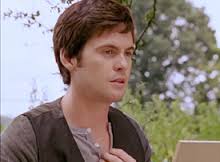
My poor neglected blog – again. There are no excuses, but there are reasons, this time anyway. My mum died two weeks ago now. The funeral was less than a week ago and frankly, it is all still too raw to write about, and I am not sure you would want to hear it anyway. One day perhaps…
But I felt I had to write something today, about love, about yearning and about the possible joy love can bring. Losing someone is terrible, the pain such a contrast to happier times. The world seems a desperate place at the moment. We are surrounded by terrible images, endless news ‘updates’ that seem almost to glory in the horrors human beings are facing. We long to help, do what little we can and then watch others seeming to do so much more. How tiny and inadequate one can feel at the moment. We live fast-paced lives as if we are immortal, yet death is all around us and frighteningly close.
But we are surrounded by love too if we can but see it.

One of my favourite poems is not, believe it or not, by John Keats. Called Love’s Philosophy it is by his contemporary, however, and fellow Romantic, Percy Bysshe Shelley. I don’t read much Shelley, to be honest. He wrote ‘Adonais’, an elegy on the death of Keats which, however well meant, was no small part of the early movement that saw Keats depicted, quite wrongly, as a rather fragile man, incapable of taking the criticism without swooning and dying. However, I was drawn to this poem by an episode of the crime drama Lewis called ‘And the moonbeams kiss the sea’, which featured a rather lovely performance by actor Tom Riley as an autistic artist, innocently forging letters in Shelley’s hand. This poem is quoted in what has turned out to be one of the best episodes of a fantastic series, and turning to my poetry shelves I read it in full and fell in love with it immediately.
Love’s Philosophy by Percy Bysshe Shelley
The fountains mingle with the river
And the rivers with the ocean,
The winds of heaven mix forever
With a sweet emotion;
Nothing in the world is single,
All things by a law divine
In another’s being mingle
Why not I with thine?
See the mountains kiss high heaven,
And the waves clasp one another;
No sister-flower would be forgiven
If it disdained its brother:
And the sunlight clasps the earth,
And the moonbeams kiss the sea –
What is all this sweet work worth,
If thou kiss not me?
Full of dreamy innocence, whilst at the same time using the laws of the natural world as a means of seduction, the second stanza strikes me as one of the most captivating expressions of the potential joy of love. Those images of nature as lover are irresistible and lead inexorably to that last line, which charms as it pleads. It is simple and lovely.
It may seem odd to share a poem such as this when I am experiencing a personal loss, and so many others are staring into an abyss. However, it is now that our love for one another is often shown most clearly.
After all, what is the point of all the wonders of the world if we can’t, simply, love one another?

